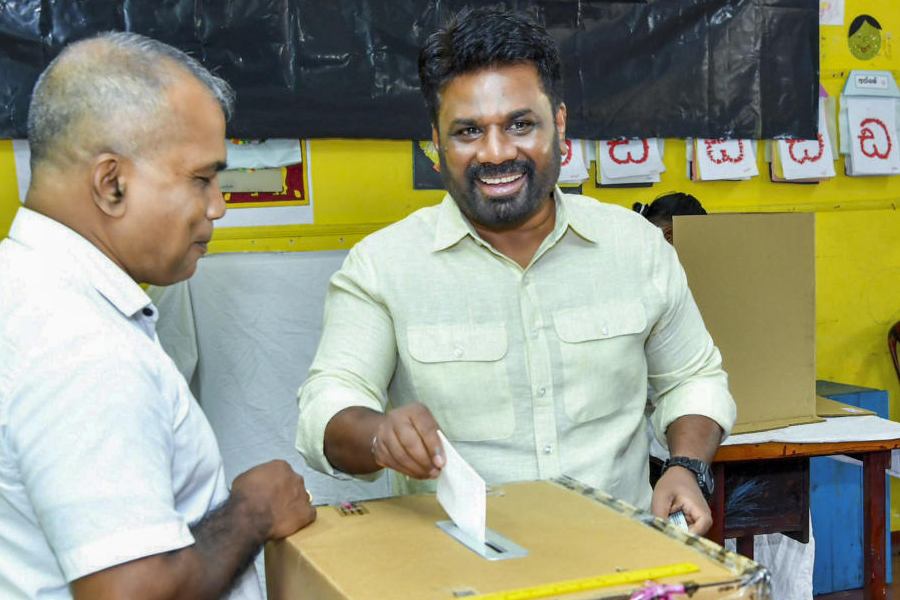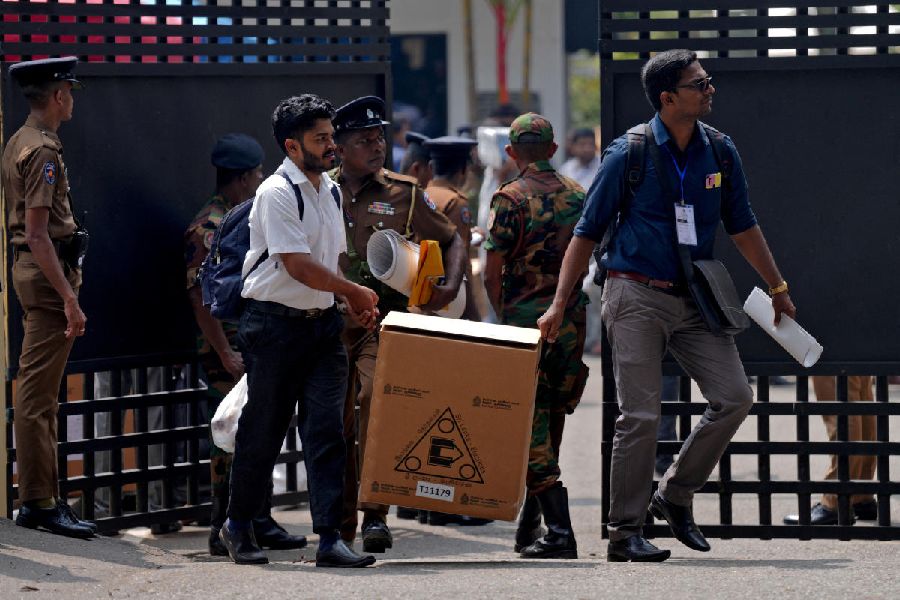Voting for the snap parliamentary election drew to a close at 4 pm local time on Thursday in a largely peaceful manner across Sri Lanka.
Counting would commence immediately after all ballot boxes are received at the counting centres, the election officials said, adding, the first results would be expected after midnight.
It is a first major test for the ruling National People's Power (NPP) party, led by President Anura Kumara Dissanayake.
Polls monitoring groups said the voter turnout out was lower than the high 79 per cent recorded at the presidential election held in September.
By 12 noon, after 5 hours of voting, most of the districts had recorded a below 50 per cent turnout out, estimates from the monitors said.
The election commission said it anticipated an overall turnout of 65 per cent.
Voting that started at 7 am local time took place at over 13,314 polling stations across the country.
Over 17 million voters from the island’s 21 million population were eligible to vote for the new 225-member Parliament for a five-year term.
Nearly 90,000 security personnel from the police and the military were deployed to provide security at the election venues.
Police spokesperson said that except for arrest of three individuals involved in illegal election campaigning activities, no acts of violence were reported and the election remained peaceful overall, local media reported.
Ruling NPP is expected to win the contest by gaining a simple majority of 113 seats in the 225 member assembly, according to poll observers.
After casting his vote in Colombo, Dissanayake told reporters he was expecting a mandate for a very strong parliament.
Stating that he would be happy to finish short of an absolute majority of 150 seats, Dissanayake said, “A strong parliament is sufficient for us. Because the bills that we bring are laws that are favorable for the common people.” “If we are introducing laws that benefit people, we can secure a vote that exceeds two thirds.” Asked about the Tamil minority dominated north, Dissanayake said the Tamils have high hopes from his government.
“A key point in the change is when there will be a government that is accepted by people in the north and south, in the east and west.”
Except for the headline, this story has not been edited by The Telegraph Online staff and has been published from a syndicated feed.












